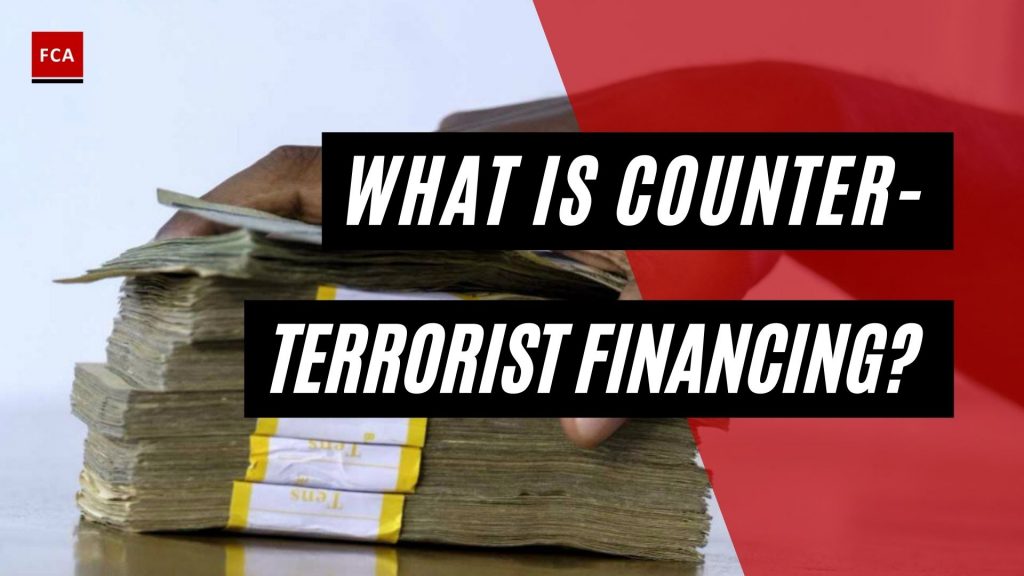Counter-Terrorist Financing (CTF) is a set of government laws, regulations, and other practices that are intended to restrict access to funding and financial services for those whom the government designates as terrorists. By tracking down the source of the funds that support terrorist activities, law enforcement may be able to prevent some of those activities from occurring.

Counter-Terrorist Financing (CFT)
Terrorists use different methods to finance their activities and conceal the sources of their funds, so financial regulators and law enforcement must use a variety of techniques to catch these criminals.
The funds may come from legal sources, such as legitimate businesses, government funding, and religious or cultural organizations, or from illegal sources, such as drug trafficking, kidnapping, and government corruption. The funds may also come from an illegal source but appear to come from a legal source, through money laundering.
Money laundering and terrorism financing are often linked. When law enforcement is able to detect and prevent money laundering activities, it may also be preventing those funds from being used to finance acts of terror. Combating money laundering is key to CTF. Instead of trying to catch a criminal plotting or committing an act of terrorism through other means, law enforcement officials may address the problem from the money side by pursuing the flow of funding that supports the activities.
CTF policies involve investigating and analyzing suspicious financial flows and the routine surveillance and collection of vast amounts of data regarding transactions across the economy. CTF efforts may focus on charities, informal banking activities (such as hawala), and registered money service businesses, among other entities. However, most CTF policies and regulations by necessity apply broadly to entire populations and financial markets.
National And International Counter-Terrorist Financing Initiatives
CFT policies are largely based on and are modeled after the Financial Action Task Force‘s report Forty Recommendations (FATF). The FATF, which is made up of 37 countries and two regional organizations (the European Commission and the Gulf Cooperation Council), works to combat money laundering and terrorism financing by developing standardized processes to thwart threats to the international financial system. Following in the footsteps of the FATF, world organizations, international financial institutions, and numerous national governments have pursued CFT initiatives and policies.
CFT at the international institution and non-governmental organization (NGOs) level includes teaching law enforcement financial investigative techniques, teaching prosecutors how to win money laundering cases, and training financial regulatory authorities to detect suspicious activity. The FATF also collects and disseminates data on money laundering and terrorism financing trends, and it collaborates closely with the International Monetary Fund (IMF), the World Bank, and the United Nations.
CFT efforts at the national level are essentially anti-money laundering policies. The primary mechanism of anti-money laundering laws and regulations is to require individuals and businesses to disclose to government authorities information about financial transactions, organizational and ownership structures, and the identities of individuals and entities involved. When suspicious financial activities are discovered, they can be reported to law enforcement for prosecution, and assets can be seized or frozen.
Benefits And Costs Of Counter-Terrorist Financing
The primary goal of CFT is to disrupt and prevent the occurrence of terrorist activity. Another reason for CFT is that the use of the financial system by criminals engaged in money laundering and terrorist financing may jeopardize the financial system’s stability. If the financial system is unable to detect illegal activities, the public may lose faith in its integrity.
CFT also has significant societal costs. The most serious of these is that CFT policies frequently reduce or eliminate privacy and anonymity in financial and other transactions for all members of society.
CFT policies require everyone to compromise their financial privacy, whether or not they are involved in terrorism financing. To detect money laundering, information on all major transactions must be gathered. Because people value their privacy, this represents a huge loss to society, on top of the administrative burden of the disclosures themselves.
What Is CFT Compliance?
CFT compliance, also known as Countering the Financing of Terrorism Compliance, refers to the set of banking policies and standards used by financial institutions to comply with international anti-money laundering laws. These standards typically require financial institutions to collect client information, identify the origin of their funds, and report suspicious transactions.
Final Thoughts
Terrorists frequently rely on financial institutions, particularly banks, to transfer money, so they play an important role in combating terrorism financing. Laws requiring banks to conduct due diligence on their customers and report suspicious transactions can aid in the prevention of terrorism.
When countries’ anti-money laundering and CFT laws differ, especially when some countries provide more financial freedom and privacy than others, proponents of CFT will press those countries to tighten financial restrictions and surveillance on the grounds that they may otherwise allow terrorists to move money in secret. Terrorist financing becomes more difficult to conceal by establishing standardized procedures for the financial sector, the criminal justice system, and specific businesses and professions.








